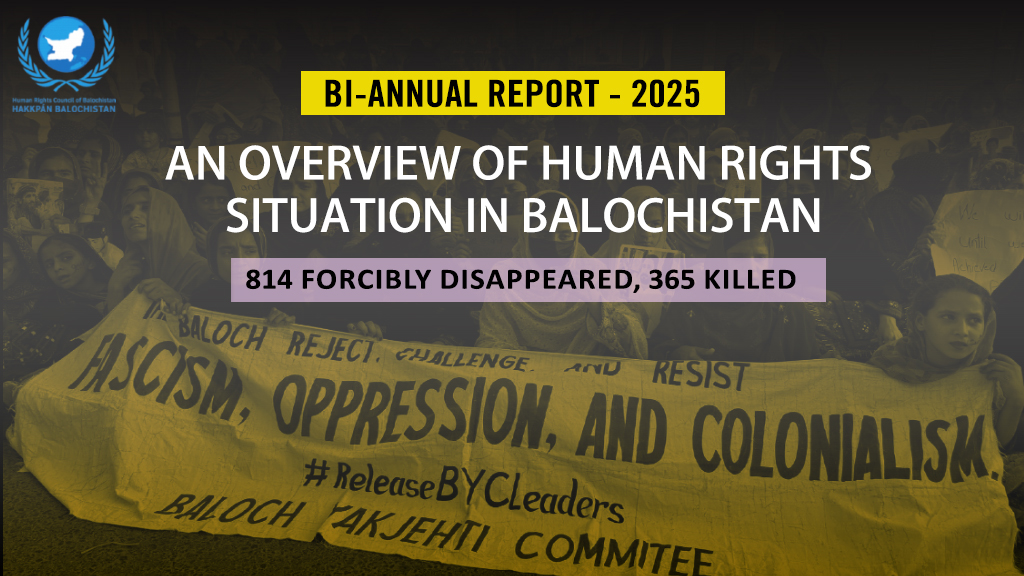Balochistan: Biannual Review of Human Rights Situation (January–June 2025)
In the first six months of 2025, Balochistan has faced a shocking escalation of state violence. The Human Rights Council of Balochistan recorded 814 enforced disappearances between January and June, almost matching the total for all of last year. Students, activists, laborers, and ordinary civilians have been systematically targeted by security forces and state agencies.
At least 131 people have been killed without trial through custodial torture, staged encounters, and indiscriminate military operations. The peaceful Baloch Yakjehti Committee has come under fierce attack, with its leaders arrested, protests violently broken up, homes raided, and smear campaigns spread to silence their voices.
In June, the provincial assembly passed a dangerous amendment to the Anti-Terrorism Act, giving security agencies sweeping powers to arrest without warrants, hold people for 90 days without trial, and set up so-called de-radicalization centers that function like internment camps.
This violence has spared no one. Thirteen-year-old protester Nehmat Baloch was shot dead during a police assault on a peaceful sit-in. Despite repeated appeals from human rights groups at home and abroad, the state continues to act with total impunity. This report lays bare the machinery of repression and calls for urgent action to end these abuses.

